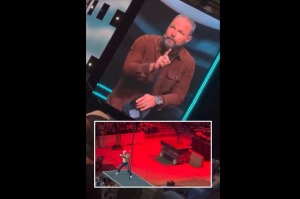The Conditions of Unconditional Love Part 3

After much prayer, my greatest "God's love" discovery occurred when I studied the sermons of nineteenth century revivalists. I was amazed to find that they did not see agape love as the highest order of love a Christian should aspire to. Unlike today, they did not teach "unconditional love" for God. They believed that the Greek word "philo" which we interpret today as a friendship love went much further than that. They believed instead that the word "philo", meant a deep, intimate, close friendship love, much like that between Jonathan and David. They taught that it meant if you will a friendship to the end. As believers in the nineteenth century received the "agape" love of mercy in the beginning through salvation, they grew up in deeper intimate friendship love of "philo" for their Savior!
Proponents of the teachings of unconditional love like to showcase their discovery based on the discussion of Jesus and Peter after Jesus' resurrection in John 21:15-17 (KJV). Let's look at a part of that discussion to be able to understand this common perception, inserting the Greek word for love. "Peter agape thou me more than these? Peter replies "Jesus you know that I philo you." They teach that Jesus is taking the high road first and that Peter is answering humbly by stating a lesser love. To them this would be a lesser love of simple friendship. For modern interpreters the discussion goes like this. "Peter do you love me unconditionally? Peter answers, "Jesus you know that I love you with a simple friendship love." Then Jesus says, "Feed my sheep."
Let's next consider how the same thing applies, as the theologians of the nineteenth century would have understood it.
"Peter do you have a simple love of compassion for me?" Peter responds with, "Jesus you know that I love you with a deep, intimate, close love for you." Then Jesus says "Then feed my lambs." Once again a second time Jesus asks him, "Peter do you (agape) me or do you have a simple love of mercy for me?" Peter again replies, "Jesus you know that I 'philo' you or have a deep, intimate, love for you." Jesus then says "Feed my Sheep." Notice the third time Jesus queries him, the shift is upward, not downward as modern day interpreters would have you believe. Jesus says Peter do you "philo" me?" Or in other words, "Peter, do you really love me with a deep personal intimate close love?" At this point we see that Peter was grieved because Jesus asked him a third time. This time using the same word Peter used all three times. "Peter do you 'philo' me?" Peter then responds with what he has been saying all along. "Lord you know that I 'philo' you or "love you with a deep intimate friendship love. Then Jesus responds" Peter feed my sheep."
Can you see the clear difference between the two? This clearly shows why true Biblical revival flourished during that time, due to the fact that believers were not "numbed down" as they are today. Grasping this fundamental fact could produce a type of revival in every believer's heart!
In today's church, as I have written in other articles we have created this "Grandpa God" who is all warm and fuzzy, who loves everybody the same no matter what they are doing or what they have done. It is interesting that secular psychologists have described unconditional love as the "love of a grandparent for their grandchildren." By interpreting this whole thing backwards, as Satan is so good at doing to scripture, all fear of God has been removed. It has left the door wide open to now have all kinds of churches and all kinds of doctrine. Some have no doctrine at all. Many of today's churches just focus on experience or feeling. May we all be warned by Paul's admonition in 1st Timothy 4:1 (KJV) "Now the Spirit speaketh expressly, that in the latter times some shall depart from the faith, giving heed to seducing spirits, and doctrines of devils. Ask yourself, "what kind of doctrine might this be?" Would it be a doctrine supported by many other scriptures and by the forefathers who blazed a trail of revival in American history? Or would it be a doctrine that claims to have come through new revelation and a combination of the beliefs of modern psychology? I think Christians who are truly praying for God's wisdom should be asking themselves "Just what does my church believe?" Is what they teach supported by scripture?"
To conclude the third edition in this series, "The Conditions of Unconditional Love", I would like to offer just a few more proofs that what I am saying is true. One is that the word agape is used in the New Testament in other places that baffle the minds of the "unconditional love" proponents. One is found in 2nd Timothy 4:10a (KJV). Paul says "For Demas hath forsaken me having "agape-ed" loved this present world. Jesus also used "agape" in Luke 11:43 as he describes how the Pharisee's love the front seats in the synagogue. Remember that for any doctrine to be true, it has to pass the test of every example in scripture. "Agape" meaning "unconditional love" simply fails that test. However it always passes the test of being a common love of mercy or favor.
The truth of all this became starkly obvious to me when I started doing Biblical counseling. In the past, I felt stymied when I attempted to help someone who was filled with bitterness due to having been wronged by someone. When I tried to encourage them to love that person unconditionally their response would almost always be, "I could never do that!" However, once I began encouraging them to offer that person "undeserved love," to my joy, their response became a confident, "Now that I can do with God's help!" May your heart be open today to this beautiful truth!




























